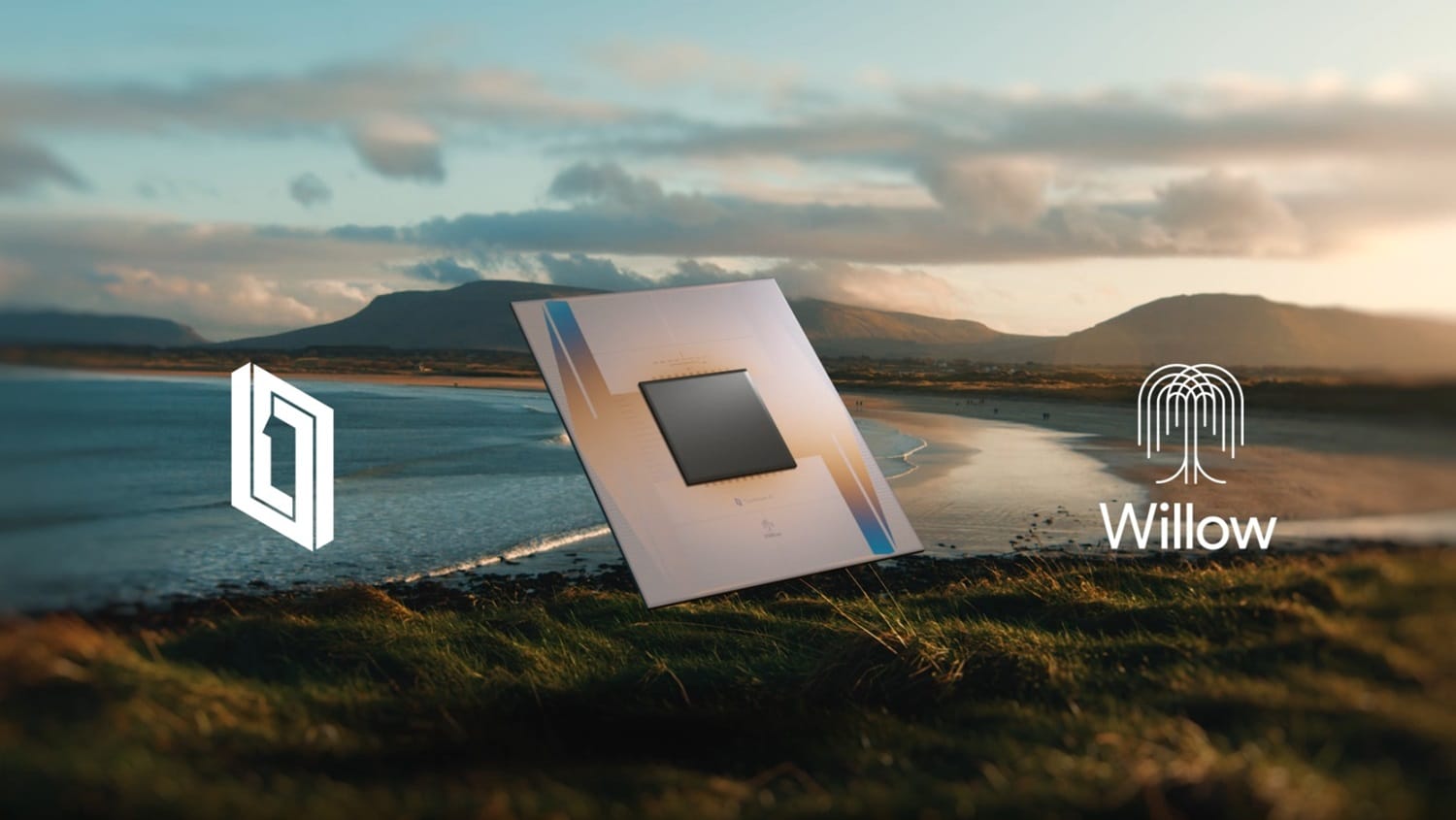Google’s Willow Achieves Quantum Breakthrough
Google's new quantum chip, Willow, solves problems in minutes that supercomputers need billions of years for, redefining computing's future.

Google has unveiled a major breakthrough in quantum computing with its new quantum chip, code-named "Willow." This cutting-edge technology can solve problems so incredibly complex that even the fastest supercomputers on Earth would need longer than the entire age of the universe to finish them. Willow does it in under five minutes. More than just a lab experiment, this moment marks the arrival of a new era where quantum computing has a genuine shot at changing our world, from speeding up drug discovery to making renewable energy systems more efficient.
A New Frontier in Computing
At its core, quantum computing is unlike anything we’re used to. Traditional computers rely on binary bits: zeros and ones; to process information. Quantum computers, however, use "qubits," which can exist in multiple states at once. This gives them incredible power to handle sprawling, complex calculations far more efficiently than classical machines ever could.
Google’s previous quantum chip, Sycamore, had 53 qubits and was already considered a marvel. Now, Willow doubles that count to 105 qubits. In tests, Willow tackled a calculation in under five minutes that a top-tier classical supercomputer would need an unfathomable amount of time for, some estimates say longer than the universe has even existed. It’s not just a numerical feat; it’s a bold statement that quantum technology is starting to live up to the hype.
Cracking the Error Problem
For decades, one of the toughest challenges in quantum computing was dealing with errors. Qubits are super sensitive, any tiny interference can knock them off track, leading to unreliable results. In the past, attempts to build bigger quantum systems ran into this wall: too many qubits, too many mistakes.
Willow changes the game by using a clever new strategy for error correction. Instead of just adding more “working” qubits, Google’s team includes extra qubits specifically designed to detect and fix errors. This approach dramatically lowers the error rate, stabilizing the computations and opening the door to complex, meaningful tasks that were once impossible.
Why This Matters to You
It’s about real-world impact:
- Smarter AI: Quantum computing could supercharge machine learning, leading to AI systems that learn and adapt much more quickly. This might help us build better language models, smarter autonomous vehicles, and innovative technologies we haven’t yet imagined.
- Medicine and Drug Discovery: Finding new drugs often involves simulating molecules and their interactions, a job so difficult that conventional computers can barely scratch the surface. Quantum computers like Willow can make these simulations more accurate and much faster, potentially speeding up the development of life-saving treatments.
- Clean Energy Optimization: Managing renewable energy systems, like predicting how wind farms and solar panels will behave, is complicated. Quantum computers can handle these optimization problems better than classical ones, possibly lowering energy costs and improving sustainability.
- Finance and Beyond: From risk analysis to portfolio optimization, quantum computing can shine a brighter light on complex financial questions. The result? More informed investments, better risk management, and a more resilient economic landscape.
- Advanced Materials: Quantum simulations allow scientists to design materials at the atomic level. Imagine breakthroughs in batteries, superconductors, or construction materials that are lighter, stronger, and more efficient than anything we have today.
Leading the Pack
With Willow, Google reaffirms its place at the forefront of quantum research, nudging past competitors like IBM, Microsoft, and Amazon. Back in 2019, Google made headlines by achieving “quantum supremacy” with the Sycamore chip. Critics then pointed out that the task Sycamore tackled wasn’t particularly useful. Willow changes that conversation by moving closer to solving problems that matter in our daily lives.
A Future Taking Shape
Google plans to partner with industry leaders, whether in healthcare, energy, or manufacturing, to start putting quantum computing to work on real problems. Over time, quantum computing could become more accessible through cloud services, letting businesses and researchers worldwide tap into this technology without needing to build their own quantum labs.
Complex Questions and Responsibilities
As with any major leap in technology, there are new concerns. Quantum computers might eventually break today’s encryption methods, posing a cybersecurity challenge. Experts are already developing "quantum-safe" cryptography to keep our data secure in a quantum-powered world.
The economic impact could also be profound. Quantum computing might upend whole industries, making certain traditional processes obsolete while paving the way for new innovations and new job opportunities. Governments, businesses, and educational institutions will need to adapt fast.
Hurdles Still Ahead
Willow is a huge step, but quantum computing is just starting to flower. Not every problem suits a quantum solution, and building systems with thousands or millions of qubits will demand even more innovation. There’s also the practical issue of energy consumption. Running a quantum computer often means keeping it at just a fraction of a degree above absolute zero, which takes a lot of power.
Conclusion
This technology could reshape industries, accelerate scientific discovery, and help us address some of humanity’s most urgent problems. We’re witnessing the birth of a new computing era, fueled by the brilliance and determination of researchers determined to turn theory into reality.